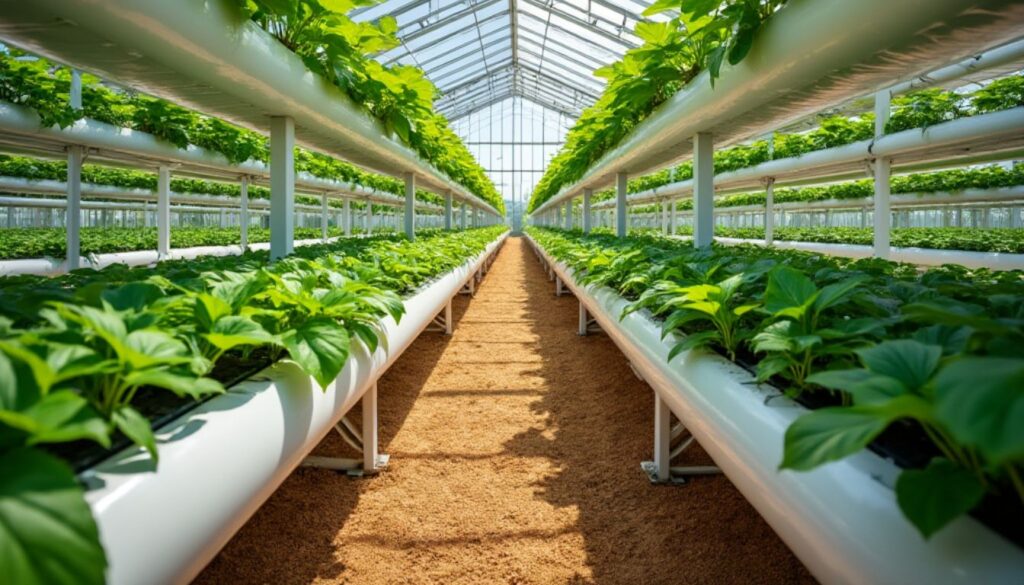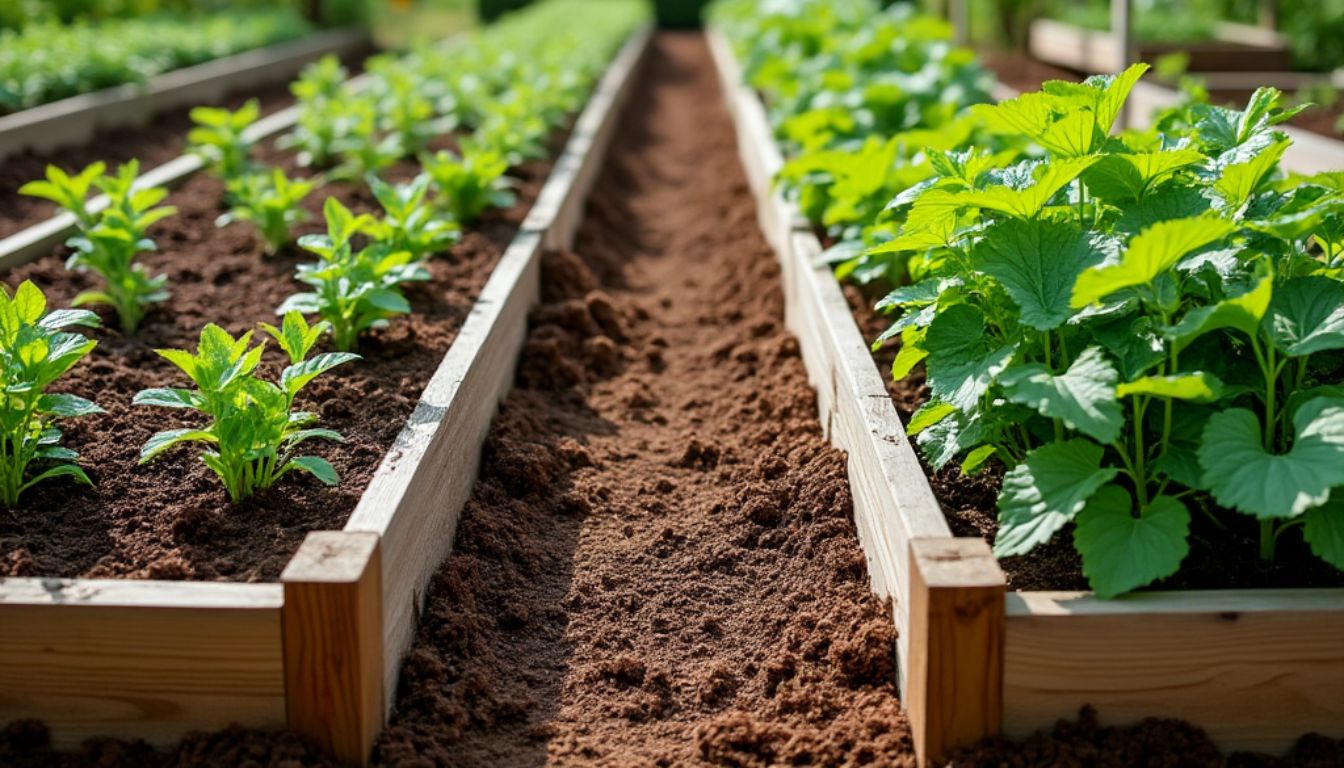If you want an eco-friendly option for gardening or home projects, coconut coir is an excellent choice. Made from the husks of coconuts, this natural fiber provides a sustainable solution that supports plant health while being kind to the environment. I’ve come to appreciate just how versatile and effective it is, whether used in potting soil, erosion control, or other applications.
What Is Coconut Coir?
Coconut coir is a natural fiber derived from the husk of coconuts. It serves as a sustainable resource that benefits both gardening and home improvement. Made primarily of strong and durable fibers, coconut coir effectively retains water while providing excellent aeration for plant roots.
This eco-friendly material boasts versatility. I use coir in potting mixes, as it supports healthy plant growth. Its water retention capability means I don’t have to water my plants as frequently. Coir also promotes drainage, helping prevent root rot.
Coconut coir finds application beyond gardening. People use it in erosion control and as a natural mulch. The fibers help stabilize soil and protect it from wind and water erosion. It makes for a fantastic organic option. Plus, coir is biodegradable, so it’s a friendly choice for the environment.
In addition, coconut coir serves as an alternative to peat moss. While peat takes thousands of years to form, coir is renewable and harvested sustainably. I appreciate knowing my gardening practices can help reduce environmental impact.
The benefits of coconut coir extend to its ability to improve soil structure. It enhances nutrient availability for plants and promotes healthy ecosystems in the soil. I often recommend coir to fellow gardeners for these advantages and its ease of use.
Overall, coconut coir is a fascinating resource, offering various benefits for gardening and sustainable practices. Using it feels like giving my plants a cozy home while supporting the planet.
Benefits of Coconut Coir
Coconut coir offers various advantages that enhance gardening and promote environmental sustainability. Its unique properties make it a popular choice for gardeners and eco-conscious individuals alike.
Environmental Impact
Coconut coir originates from coconut husks, making it a renewable resource. Unlike peat moss, coir doesn’t take centuries to decompose. Its harvesting process generates minimal waste and supports sustainable practices. Coir products often come from discarded husks, reducing landfill contributions. By using coir, I contribute to soil conservation and biodiversity. Plus, its biodegradability means it won’t linger in landfills for ages.
Soil Health Improvement
Coconut coir improves soil structure significantly. It retains moisture, allowing plants to stay hydrated longer without constant watering. This water retention keeps roots happy and healthy. Good drainage prevents root rot, giving me peace of mind. Coir enhances aeration, allowing roots to breathe and absorb nutrients effectively. Using coir in potting mixes boosts nutrient availability. I notice healthier plant growth and vibrant blooms when I incorporate it into my gardening routine. With coconut coir, I create a thriving ecosystem in my garden.
Uses of Coconut Coir

Coconut coir is versatile and finds applications in many areas. Its durability and eco-friendliness make it an excellent choice for various uses.
Gardening and Horticulture
I find coconut coir a fantastic addition to gardening and horticulture. It’s often used as a soil amendment. The fiber improves soil structure and moisture retention. Adding coir to potting mixes helps balance drainage and aeration.
Coir’s ability to hold water minimizes the need for constant watering. Plants thrive in this breathable medium. Gardeners also appreciate its sustainable nature. Unlike peat moss, coir comes from renewable sources and reduces environmental impact.
Home Décor and Crafts
I love using coconut coir in home décor and crafts. It creates unique, rustic accents. Coir mats and rugs bring a touch of nature indoors. These items are durable and attractive, making them popular choices for eco-conscious designers.
Craft enthusiasts enjoy making plant hangers and decorative pieces using coir. Its natural texture adds charm to any DIY project. With so many uses, coir makes for an exciting material in both home and garden settings.
Comparison with Other Growing Mediums
Coconut coir stands out when compared with other growing mediums. Its water retention keeps plants hydrated, while many soil types struggle with moisture levels. Coir holds about 10 times its weight in water. This property means I water less frequently, which equals more time sipping coffee.
Peat moss is another common growing medium. While peat can retain moisture, it’s not renewable. Harvesting peat takes thousands of years, which raises environmental concerns. In contrast, coconut coir derives from discarded coconut husks. Coir offers a sustainable option while reducing waste.
Perlite is popular for aeration in potting mixes. It does a good job but lacks the moisture-retaining ability of coir. My plants often need additional water when using perlite. Coir, however, maintains just the right balance between moisture and air pockets.
Vermiculite is another choice gardeners make. It improves aeration and water retention but may introduce additional minerals. Too many minerals can alter pH levels. Coir’s neutral pH keeps plants happy without fuss.
Hydroponic systems rely heavily on inert mediums. While they promote fast growth, they miss out on the soil benefits that coir offers. I enjoy the natural process that comes with soil, helping me connect more with my plants.
Overall, each medium has its advantages. Yet coconut coir combines sustainability, moisture retention, and excellent aeration, hitting all the right notes for gardening. If I ever find myself torn between options, I lean towards coir. It’s like the reliable friend that always shows up to help without being asked.
Before You Go – Coconut Coir for Gardening and Home Improvement
Coconut coir stands out as a remarkable choice for anyone looking to embrace eco-friendly gardening and home improvement. Its unique properties not only enhance plant health but also contribute to sustainable practices.
I’ve found that using coconut coir not only simplifies my gardening routine but also aligns with my commitment to the environment. The versatility of coir makes it an essential resource in my gardening toolkit.
Whether I’m improving soil structure or creating beautiful home décor, coir proves to be an invaluable asset. Adopting coconut coir is a step toward healthier plants and a healthier planet. Don’t forget to add The Herb Prof to your favorites so you don’t miss out on any articles in the future.
References – Coconut Coir for Gardening and Home Improvement
Little Herb Encyclopedia, by Jack Ritchason; N.D., Woodland Publishing Incorporated, 1995
The Ultimate Healing System, Course Manual, Copyright 1985, Don Lepore
Planetary Herbology, Michael Tierra, C.A., N.D., Lotus Press, 1988
Handbook of Medicinal Herbs, by James A. Duke, Pub. CRP Second Edition 2007
The Complete Medicinal Herbal, by Penelope Ody, Published by Dorling Kindersley
Check the Following Articles
Discovering the Cannonball Tree: Nature’s Unique Beauty
Discover Purple Dead Nettle (Lamium Purpureum)
Benefits of Turmeric and Ginger for Better Health
How to Grow Thyme Plant: Tips for a Flavorful Herb Garden
Frequently Asked Questions – Coconut Coir for Gardening and Home Improvement
What is coconut coir?
Coconut coir is a natural fiber derived from coconut husks. It is known for its strength, durability, and excellent water retention capabilities, making it a favored material in gardening and home improvement.
How does coconut coir benefit garden plants?
Coconut coir provides superb aeration and moisture retention for plant roots, which leads to healthier growth. It reduces watering frequency and helps prevent root rot, contributing to vibrant, flourishing plants.
Is coconut coir environmentally friendly?
Yes, coconut coir is an eco-friendly alternative to peat moss. It is a renewable resource made from discarded coconut husks, reducing waste and supporting sustainability while minimizing landfill contributions.
Can coconut coir be used for erosion control?
Absolutely! Coconut coir is effective for erosion control, stabilizing soil and protecting it from erosion. Its natural fibers help hold soil in place, making it beneficial in landscaping and gardening.
How does coconut coir compare to peat moss?
Coconut coir is a more sustainable alternative to peat moss. Unlike peat, which takes thousands of years to form, coir is renewable and retains moisture without raising environmental concerns related to peat extraction.
What are some uses of coconut coir besides gardening?
In addition to gardening, coconut coir is versatile and used in home décor, such as mats and rugs. It is also popular for craft projects, offering an eco-friendly option for various DIY applications.
Does coconut coir alter soil pH?
No, coconut coir maintains a neutral pH, making it suitable for a wide range of plants without risking alterations in soil chemistry. This balance supports healthy plant growth and soil health.
How much water can coconut coir retain?
Coconut coir can retain about 10 times its weight in water, making it highly effective for moisture management in gardening. This feature helps minimize the need for frequent watering.
